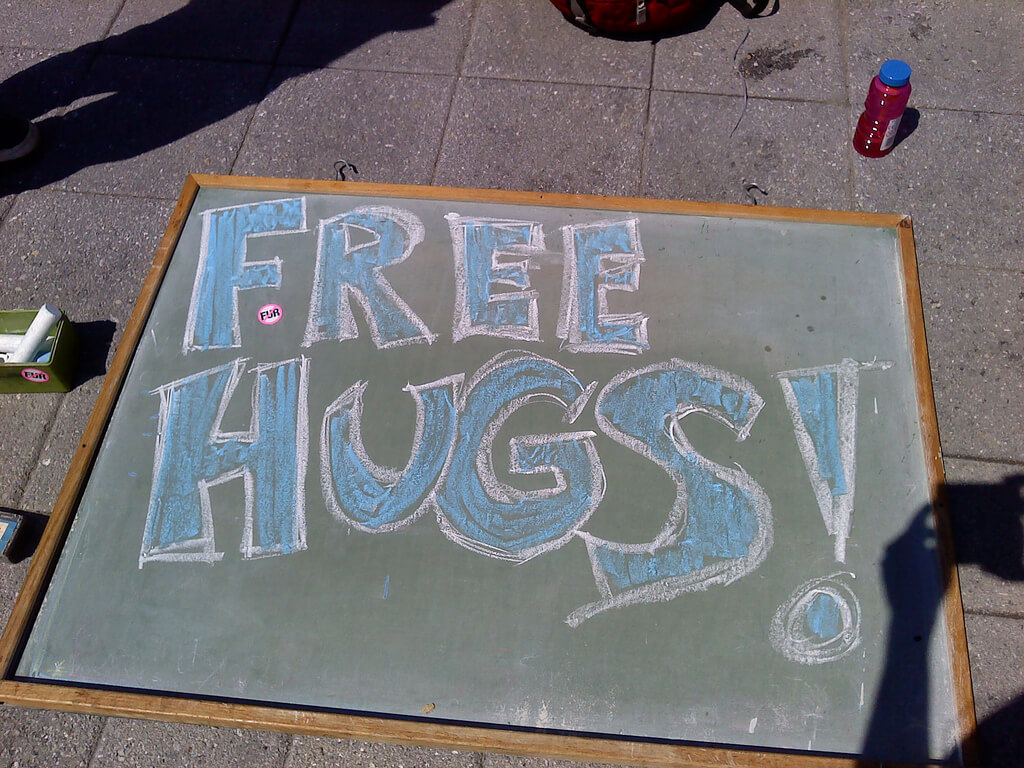So what’s in a hug? More than you might think, according to a European campaign, some Finnish research and a Shenandoah University psychology professor.
The grassroots #hugabrit campaign’s aim keep Britons from leaving the European Union with hugs points to the extraordinary power wrapped up in touch.
Researchers at Aalto University in Finland have delved into the importance of touch in relationships, noting that its origins can be seen today, in how primates groom one another. The caring touch from a loved one signals the release of endorphins. And endorphins are powerful neuropeptides, according to the article.
Endorphins are part of the pain control system, and produce an opiate-like analgesic effect. In fact, they are chemically closely related to opiate drugs like morphine, but differ in two key respects: on a weight for weight basis, they are 30 times more effective as painkillers than morphine, and we don’t get so destructively addicted to them.
While a hug or a cuddle helps soothe psychological pain, it can also encourage babies’ growth and development, according to Shenandoah University Psychology Professor Laura K. Zimmermann, Ph.D. “A classic study on the importance of touch in early development was conducted by Tiffany Field in 1986. In this study premature infants were given 15-minute massages, including stroking and limb movement, three times a day for 10 days,” Zimmermann said. “Compared to other preemies, the massaged infants grew nearly 50 percent faster, were more active and alert, matured faster behaviorally and were released nearly a week earlier. A year later these children still showed growth and cognitive benefits. Since this time these findings have been replicated in studies conducted throughout the world.
“Infants need touch to stimulate growth—without it they are stressed by its absence. Infants who receive little touch release less growth hormone and other growth factors, and as a result grow more slowly. Throughout their lives these infants are more vulnerable to depression and tend to show larger stress responses,” Zimmermann said. “So, touch can not only calm and comfort us, help us deal with stress, and reduce pain at all ages, in early development it can improve growth, cognitive development, and body heath.”
Along with that much-touted “apple a day” that keeps the doctor away, it might be good to add more than a few daily hugs to your routine to feel just that much better.
If you’d like more information about the importance of touch at all ages, Zimmermann recommends going to the Touch Research Institute’s website.
Enjoy and Happy Hugging!
Photo Credit: crimsong19 via Compfight cc




